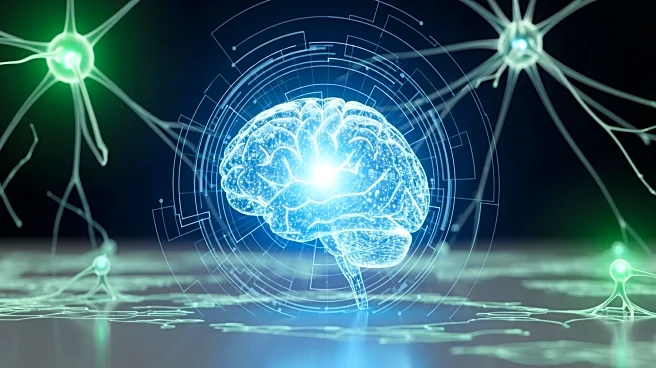What's Happening?
BrainXell Therapeutics has unveiled promising preclinical data for BXT-110, an autologous iPSC-derived neuronal therapy, at two major conferences. The data highlights the company's progress in developing
a scalable approach for BXT-110, which is designed to restore midbrain dopaminergic neurons in Parkinson's disease (PD). The therapy uses induced pluripotent stem cells (iPSCs) to generate midbrain dopaminergic progenitors, showing significant graft survival and functional recovery in preclinical models. These findings support BXT-110 as a potential disease-modifying treatment for PD, marking a significant milestone in BrainXell's mission to develop regenerative cell therapies for neurodegenerative diseases.
Why It's Important?
The development of BXT-110 represents a significant advancement in the treatment of Parkinson's disease, a condition characterized by the loss of dopaminergic neurons. By potentially offering a disease-modifying therapy, BrainXell Therapeutics could transform the treatment landscape for PD, providing new hope for patients. The use of iPSC technology in this context underscores the potential of regenerative medicine to address complex neurodegenerative disorders. Successful development and commercialization of BXT-110 could lead to improved patient outcomes and establish BrainXell as a leader in the field of regenerative cell therapies.
What's Next?
BrainXell Therapeutics plans to advance BXT-110 toward IND-enabling studies, which are crucial steps before clinical trials in humans. The company will likely continue to refine its approach and gather additional data to support regulatory submissions. If successful, BXT-110 could enter clinical trials, bringing it closer to becoming a viable treatment option for Parkinson's disease. The progress of this therapy will be closely watched by the medical community and investors, as it holds the potential to significantly impact the treatment of neurodegenerative diseases.









